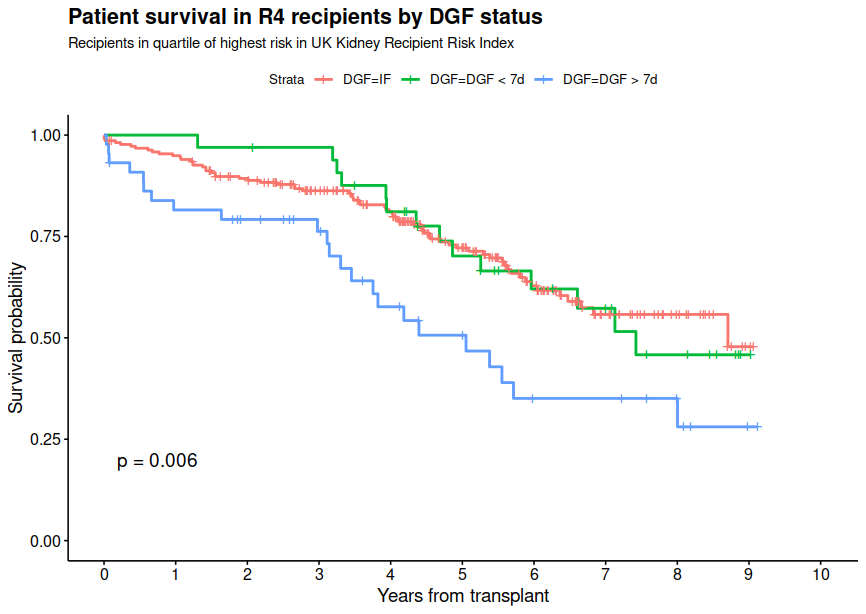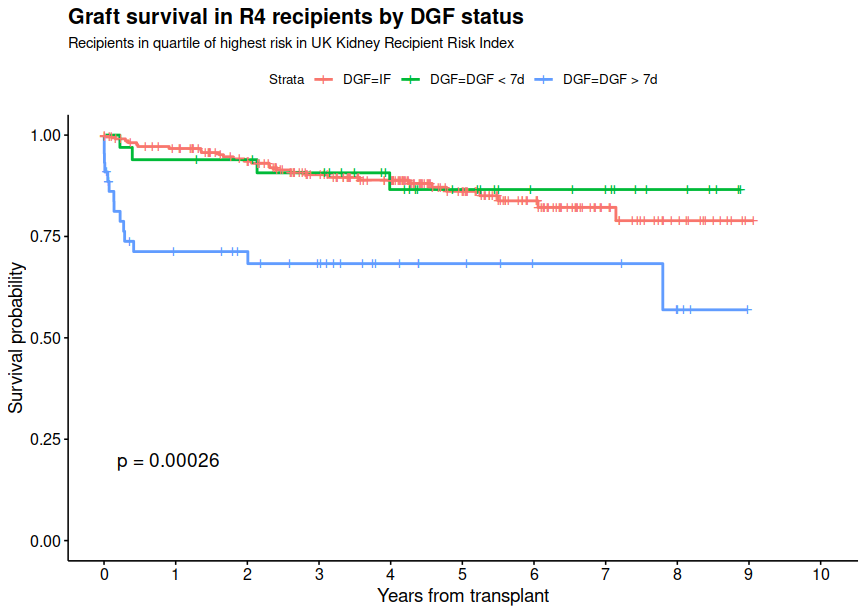
Prolonged delayed graft function is associated with poorer long term survival for borderline renal transplant recipients
Joanne Devlin1,2, Emma Aitken1,2, John Asher1,2.
1Renal and Transplant Unit, Queen Elizabeth University Hospital, Glasgow, United Kingdom; 2ICAMS, University of Glasgow, Glasgow, United Kingdom
Introduction: The UK introduced a new organ allocation system in 2019 incorporating longevity matching. Unfortunately, this has tended to allocate the more borderline kidneys to the frailer recipients with sometimes poor outcomes particularly if the transplant function is suboptimal. We looked to assess the impact of immediate and early transplant function on patient survival.
Methods: We retrospectively reviewed all transplants conducted in our unit over a 9-year period, from 2013 to 2022, subdivided them into to their UK KRRI quartile and looked at their graft and patient survival. We then focused on the R4 recipients (quartile of highest risk) and looked at the impact of delayed graft status on patient and graft survival.
Results:

The median duration of DGF in R4 recipients was 6.5 days so we split the groups into immediate function, DGF <7 days and DGF >7 days. In R4 patients 1 year patient survival was 95% with immediate function, 100% with DGF <7 days and 82% for DGF >7 days, and 5 year patient survival was 72%, 70% and 51% respectively (p=0.006).
For graft survival the results were 97%, 94% and 71% at 1 year and 86%, 87% and 68% at 5 years (p=0.00026).

Conclusion: Due to longevity matching, the highest risk recipients tend to be matched to the highest risk donors, but long-term patient and graft survival results are good when there is immediate or early return of function after transplant. Prolonged delayed graft function is associated with poor outcomes in R4 recipients and organ allocation, and acceptance protocols should seek to minimise this outcome, e.g. by avoidance of prolonged cold ischaemia or by enhanced organ preservation techniques like machine perfusion.
[1] kidney
[2] transplant
[3] function
[4] survival
